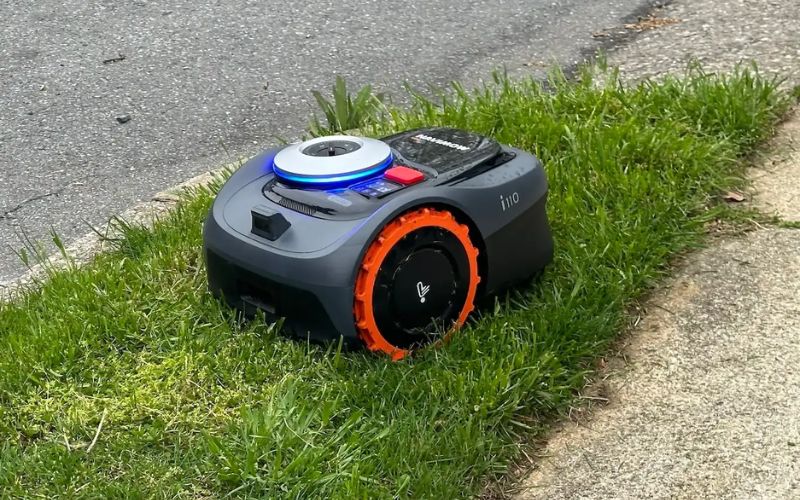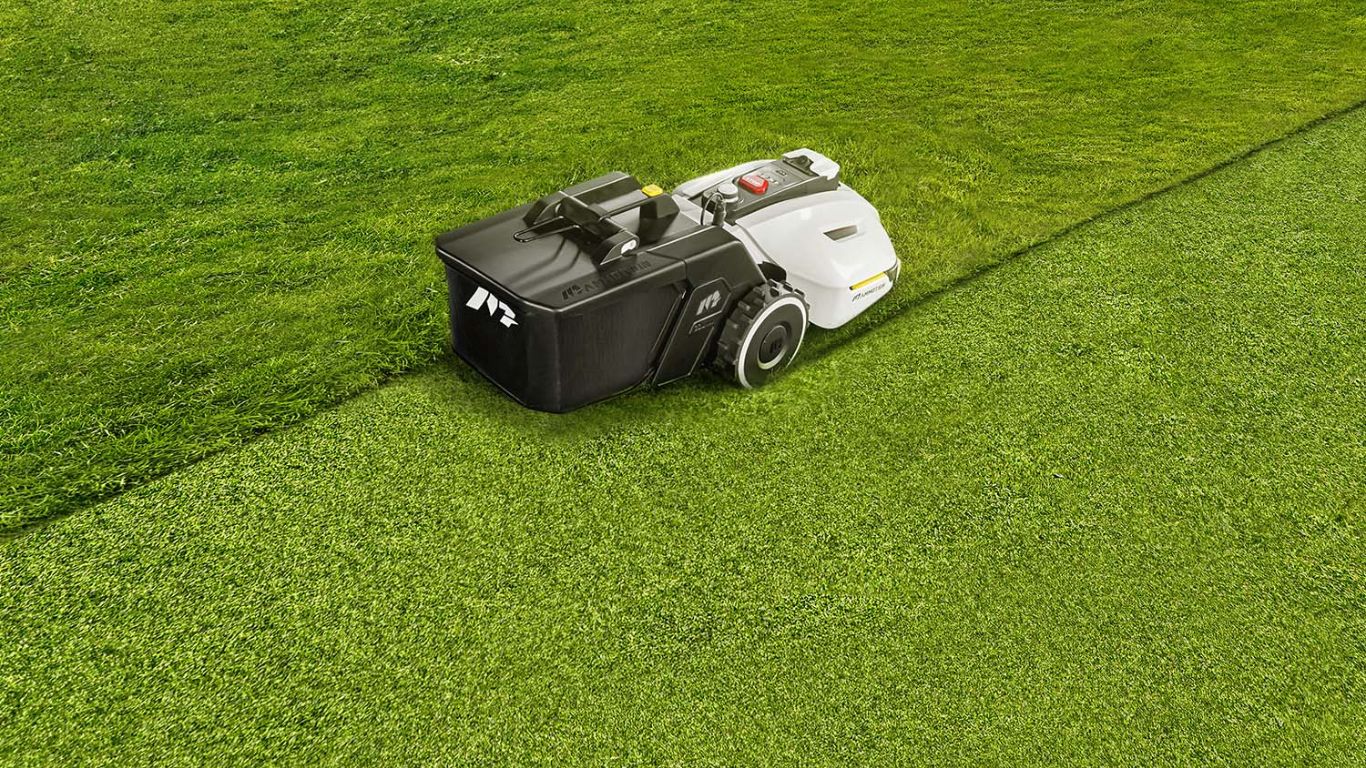Hey guys! If you’re looking for honest robot lawn mower reviews, you’re in the right spot. Here at Best Lawn Mower For Hills, we tested two popular models, the YUKA 1500 Robot Lawn Mower, and Segway Navimow i110N, to find out if these machines are really worth it. Robot mowers have been gaining a lot of attention for their hands-free approach to lawn care, but how well do they actually perform? In this post, we’ll break down our hands-on experience with both mowers, answer key questions, and help you decide if a robot mower is the right choice for your yard.
How Well Do Robot Lawn Mowers Work?
In terms of overall performance, robot lawn mowers can keep your lawn looking neat and tidy with minimal effort. During our tests, both mowers handled regular maintenance well, especially on flatter, simpler lawns. However, when it came to thicker or uneven grass, we found that models with more advanced navigation, like the Segway Navimow i110N, handled tougher areas better. It smoothly navigated slopes and dense patches, whereas the Yuka performed best in easier conditions.
For most lawns, both mowers provided a solid, clean cut. If you’re dealing with more complex terrain, though, choosing a model with advanced features like GPS navigation can make a big difference.

Do Robot Lawn Mowers Cut to the Edge?
Edge cutting is often a key consideration when choosing a robot lawn mower. In our tests, the ability to cut close to borders like fences, trees, and garden edges varied between models. The more advanced models, such as the Navimow, managed to trim right up to the edges, leaving very little need for additional touch-ups. On the other hand, simpler models like the Yuka sometimes left small patches, especially around tight corners or obstacles, that needed a quick trim with a string trimmer.
If perfect edge-cutting is a priority for you, it’s worth opting for a model with stronger navigation features. But for basic lawn care, most robot mowers will do a good job and cover the majority of your yard.

Are Robot Lawn Mowers Worth It?
Absolutely, robot lawn mowers are worth it if you value convenience and long-term cost savings. Based on our tests, these machines take the hassle out of mowing completely. No more pushing heavy mowers, filling up with gas, or worrying about oil changes. They work quietly and efficiently, and the maintenance is minimal—just occasional blade changes and keeping the unit clean.
In terms of energy efficiency, we found that robot mowers use less electricity than you might expect. If you’re using a traditional gas-powered mower, you’re saving not only on fuel costs but also on time—robot mowers work while you’re relaxing. The initial cost is higher than a basic push mower, but with the time saved and reduced maintenance, the value adds up over the years. If you have a busy schedule or just prefer low-effort lawn care, a robot mower is an investment that pays off.

Should I Buy a Robot Lawn Mower?
The answer depends on a few factors—mainly your lawn size, terrain, and budget. From our experience, if you have a smaller, flat lawn, even an entry-level robot mower will handle the job just fine. But if your lawn has hills, slopes, or a lot of obstacles like trees and flower beds, you’ll need a more advanced model with GPS navigation or smart mapping.
Budget is another thing to consider. Robot mowers can range from a few hundred to a couple thousand dollars. If you’re someone who values a hands-off approach to lawn care, and you don’t want to spend your weekends pushing a mower, the investment is worth it. For busy homeowners or anyone who dislikes manual mowing, it’s a game changer. On the other hand, if you don’t mind doing a bit of work yourself, you could stick with a traditional mower and save on upfront costs.
How Long Do Robot Mowers Last?
Based on our testing, robot mowers are built to last, but like anything, their lifespan depends on how well you take care of them. The battery life is typically 3 to 5 years, and with regular use, the blades will need to be replaced more frequently, especially if you’re cutting tough grass. We’ve noticed that keeping the mower clean and free of debris, especially around the sensors and blades, will extend its life significantly.
Maintenance is pretty straightforward—check the blades, clean the unit, and make sure the battery is charged. Proper storage is key during the off-season too. If you store the mower in a dry, safe place and keep it well-maintained, you’ll get many years of service. In our experience, they’re durable and reliable as long as you follow basic care guidelines.
Do Robotic Lawn Mowers Work?
Yes, they do—and they work surprisingly well. From our tests, robot mowers handled routine lawn care with minimal intervention. The initial setup takes some time, as you’ll need to map your lawn and set up boundary wires, but after that, they pretty much run themselves. Once they’re going, you don’t have to worry about uneven cuts or missed spots.
They’re especially good at navigating slopes and getting through thick grass, depending on the model you choose. Advanced models with GPS were the most effective in our tests, handling tricky lawn layouts with ease. For most homeowners, robot mowers are reliable, consistent, and offer the kind of low-maintenance lawn care that’s hard to beat.

FAQ
How much does a robotic lawn mower cost?
The cost of a robotic lawn mower can vary widely depending on the brand, model, and features. On average, prices range from $600 to over $3,000. Entry-level models, like the Yuka, are more affordable and offer basic mowing features, while high-end models like the Segway Navimow come with advanced capabilities such as GPS navigation and app control.
What is the largest robot lawn mower?
The largest robot lawn mower in terms of coverage area is the Husqvarna Automower 450X, which can handle up to 1.25 acres. While Yuka and Segway Navimow are suitable for medium-sized lawns, they are not designed for such large areas. For homeowners with expansive properties, opting for a larger model would be ideal.
What sensors does the robot lawn mower have?
Most robotic lawn mowers, including Yuka and Segway Navimow, come equipped with multiple sensors to ensure safe and efficient operation. These include collision sensors to avoid obstacles, lift and tilt sensors to prevent accidents, and boundary sensors to ensure the mower stays within its designated area. High-end models like the Navimow also use GPS technology for precise navigation and mapping.
Conclusion
After putting both the Yuka and Segway Navimow through extensive testing, we found that GPS-enabled robot lawn mowers are incredibly effective for hands-free, precision lawn care. As we’ve noted in our robot lawn mower reviews, both models performed well, but each caters to different needs. The Navimow, with its advanced GPS capabilities, excelled at handling complex terrain, slopes, and obstacles. It’s the top choice for larger or more challenging lawns. On the other hand, the Yuka delivered solid performance for simpler, more straightforward yards, making it an excellent option if you don’t require the additional features.
Ultimately, deciding between Yuka and Navimow comes down to your lawn’s layout and specific needs. We recommend considering your lawn size, complexity, and how much convenience you’re looking for. If you’re still unsure, check out our detailed reviews on Best Lawn Mower For Hills. Our site is packed with in-depth reviews, comparisons, and expert insights on various lawn care tools, including robot lawn mowers, to help you make the best decision for your yard. You can also leave a comment below with your questions or share your experiences—whether you’re dealing with hilly terrain, uneven lawns, or simply want the most efficient mower for your space. We’re here to help you find the perfect fit for your lawn care needs!


